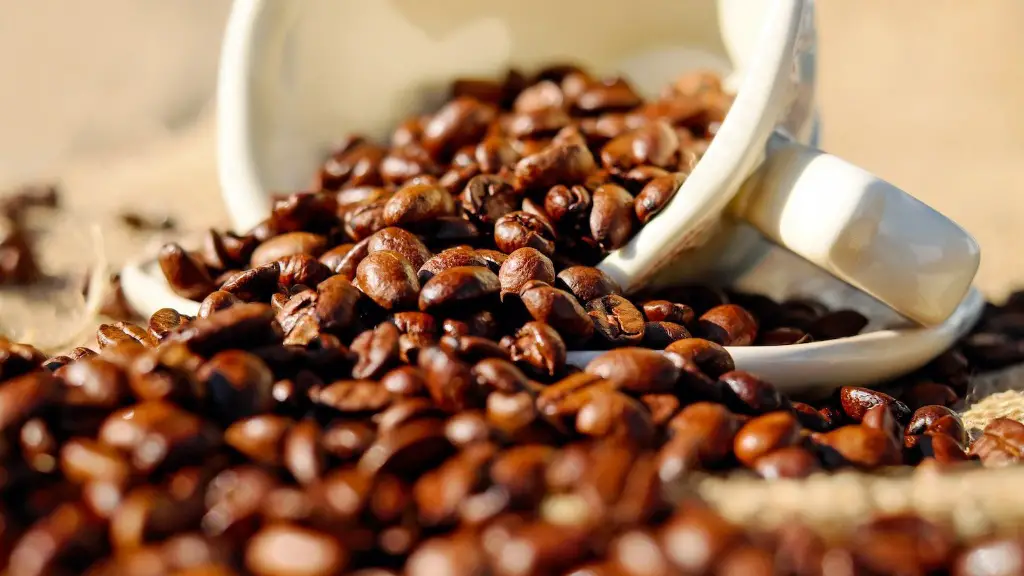Coffee is a popular drink enjoyed by many around the world, due to its unique combination of flavors and wide variety of options available. As well as this, coffee also contains caffeine, which can affect the way we feel both mentally and physically. This can be beneficial in certain situations, such as when needing an extra boost of energy or focus, however at the same time, caffeine can also be very disruptive to our sleep-wake cycle. As a result of this, it is important to consider how long to wait after drinking coffee before taking melatonin to make sure our body is not overly impacted by caffeine consumption.
Melatonin is a hormone naturally produced in the body that plays an important role in regulating the body’s sleep-wake cycle. It is often used in supplement form to promote better sleep, by signaling to the body when it is time for bed. While it can be beneficial for some people, if taken too late in the evening, or when someone has recently had coffee, it can be potentially disruptive.
It is recommended that people wait a few hours after having a cup of coffee, or other caffeinated beverage, before taking a melatonin supplement. According to experts, this is because caffeine is a stimulant that can stay in the body for several hours, meaning it can interfere with the effects of melatonin. In some cases, this can lead to disturbed sleep patterns and difficulty feeling tired, while in others, the caffeine may even block the effects of melatonin completely. Because the duration of caffeine in the body is highly individual, the amount of time someone should wait before taking melatonin can greatly vary.
One way to determine how long to wait after drinking coffee is to look at the amount of caffeine in the drink, as this will largely dictate the duration that it remains in the body. For example, an 8-ounce cup of coffee contains approximately 95 milligrams of caffeine, and is likely to take between six and eight hours for the caffeine to be eliminated from the body. On the other hand, if someone were to drink a caffeinated energy drink, this would likely take longer, as it contains more caffeine than a regular cup of coffee. By taking the caffeine content into account, it becomes easier to estimate the amount of time that a person should wait between drinking coffee and taking melatonin.
It should also be noted that other factors can also affect the level of caffeine in the body. These include an individual’s age and body weight, as well as their metabolism, which can all influence the speed of caffeine elimination. For instance, an older person or someone who is overweight may take longer to clear the caffeine from their system than a younger person or someone who is of a normal weight. As a result, it is important to take into account all factors that may influence the body’s ability to breakdown and eliminate caffeine.
Overall, it is important to wait a few hours after drinking coffee before taking melatonin in order to ensure that the body’s sleep-wake cycle is not disrupted. This can be done by taking into account the amount of caffeine in the drink and the individual’s age, body weight and metabolism. If a person is unsure, then the best advice would be to talk to a healthcare professional, who can provide personalized advice.
Additional Factors to Consider
There are many other factors to consider when waiting for a period after having coffee before taking melatonin. For instance, if someone has a particularly sensitive body, then it may be best to wait up to 12 hours after drinking coffee before taking melatonin. This is due to the fact that some people may react differently to caffeine, and their bodies may take longer to process the stimulant. In addition, if someone needs to take their melatonin late in the evening, then it might be a good idea to avoid coffee altogether and find other ways to promote better sleep.
It is also important to consider any other medications that a person may be taking, as some can also interact with caffeine or melatonin. For instance, certain antibiotics and anti-anxiety medications can decrease the body’s ability to eliminate caffeine, meaning it can take longer to process the stimulant. As a result, it is important to speak to a doctor or pharmacist to find out more about this before taking melatonin after drinking coffee.
Finally, it is always a good idea to stick to recommended dosage levels when taking melatonin. Taking too much of the hormone can lead to restlessness and irritability, as well as other related side effects. Therefore, it is important to be mindful when taking melatonin, and make sure to not exceed the recommended daily dosage.
Alternatives to Caffeine and Melatonin
In some cases, avoiding caffeine or taking supplements is not feasible, so there may be a need to look for other alternatives. One way to do this is to look for natural ways to promote better sleep, such as exercising regularly, avoiding screens a few hours before bedtime and avoiding eating late at night. Additionally, herbs such as chamomile, lavender, valerian root and lemon balm can also be used in tea form to promote better sleep.
Another option is to take steps to boost energy levels and focus during the day, such as eating more nutrient-dense foods and getting enough quality sleep. This may help to avoid the need for caffeine, or at least reduce the amount needed. In addition, certain supplements such as vitamin-B complex, magnesium and B-12 are even known to support natural energy production, so these may provide an alternative to coffee.
Herbal teas, such as green tea and rooibos tea, are also good alternatives to coffee and can still provide benefits such as an improved focus and alertness. Green tea, in particular, contains the stimulant caffeine but in much lower quantities than traditional coffee. Therefore, it may be a good option for those looking for a pick-me-up but not wanting the same drastic effect of a regular cup of coffee.
Finally, it is possible to take a low-dose melatonin supplement during the day as well as at night. This can help to establish a regular and healthy sleep schedule, by keeping the hormones in balance throughout the day. Low-dose melatonin can also provide additional benefits, such as improved mood and focus, and can be a good alternative for those who require a pick-me-up during the day.
The Impact of Caffeine and Melatonin on Health
When used correctly, caffeine and melatonin can both have a positive impact on health. For instance, caffeine is known to increase alertness, improve cognitive function and promote better moods. In addition, it can also help to reduce the risk of certain health conditions, such as type 2 diabetes and heart disease.
Melatonin, on the other hand, is known to be beneficial for promoting healthy sleep patterns, as well as reducing the risks of developing certain mental health disorders, such as depression and anxiety. In addition, melatonin can also help to reduce the impact of jet lag, improve sleep quality and assist with general wellbeing. Therefore, taking melatonin appropriately can help to optimize health and wellbeing.
However, it is important to remember that both caffeine and melatonin can have a negative impact on health if taken in too high doses or at the wrong times. For instance, too much caffeine can lead to anxiousness, restlessness, irritability and even heart palpitations. Similarly, taking too much melatonin can also lead to feeling groggy, disorientation and impaired coordination. Therefore, it is important to take both of these supplements in moderation and to be mindful when taking melatonin after drinking coffee.
Safety Advice on How to Take Melatonin
As with any supplement, it is important to use caution when taking melatonin and to be aware of potential side effects. For instance, some people may experience headaches, nausea and dizziness when taking melatonin – although this is rare. It is also important to not combine melatonin with other medications, or to drink alcohol or take recreational drugs whilst taking the supplement, as this could lead to adverse reactions.
If someone is taking other medications, then it is important to seek advice from a healthcare professional before taking melatonin. This is because melatonin can interact with certain drugs, meaning it can have a negative impact on health. Therefore, in order to ensure safety, it is important to always speak with a doctor before taking melatonin and to make sure the timing is suitable, such as waiting a few hours after drinking coffee.
Lastly, it is essential to only take melatonin under the supervision of a healthcare professional. Depending on age, lifestyle and any existing health conditions, a doctor can give personalized advice on how to safely take melatonin, as well as providing information regarding potential side effects and interactions.
Conclusion
In conclusion, it is important to wait a few hours after drinking coffee before taking melatonin, in order to allow the body to process the caffeine. This can vary from person to person, due to factors such as age, body weight and metabolism, so it is important to take all of these into account. It should also be noted that other alternatives to caffeine and melatonin can be used, such as natural herbs and supplements, as well as alterations to lifestyle and diet. Finally, it is important to always consult a healthcare professional before taking any supplement, in order to ensure safety and avoid adverse reactions.





